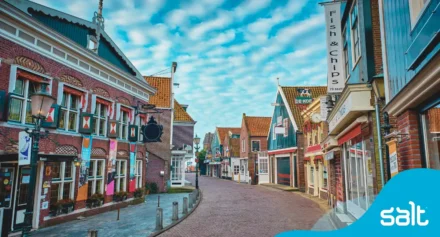London relocation guide
Whether you're hiring in London or planning a move, this city offers access to deep talent pools, a rich cultural experience, and world-class infrastructure for work and life.

Relocating to London has always been seen as a big change. For centuries, London has been seen as the capital city of the world; leading in numerous industries from education to entertainment, finance to fashion to name a few. It is a melting pot of nationalities and cultures, and has a high population growth rate year on year, as more citizens of the world flock to the ever-evolving city to fulfil their personal and professional dreams.
London has become a great base for many of the leading start-ups in digital, FTSE 100 global companies, award-winning agencies, and established global conglomerates, making it an ideal stop in your career path or business. Match this with the excellent standard of living and leisure opportunities you can indulge in, and you’ve got the perfect location to settle in.
The complete guide to living in London: Costs, culture and career tips
Thinking of relocating to London or hiring talent there? Here’s a quick overview of the essentials that shape life in one of the world’s most dynamic cities.
Living in London: Key facts you should know
City overview
- Population: 8.9 million (Greater London)
- Metro Area Population: 9.8 million
- Metro Area Size: 1,579 km²
- Time Zone: GMT (UTC+0) / BST (UTC+1 in summer)
- Currency: British Pound Sterling (GBP)
- Government: Part of the UK’s constitutional monarchy
Food and drink scene
- Michelin-Starred Restaurants: 85
- Total Restaurants: Over 11,400
- Number of Pubs: ~3,535 (and counting—despite closures, the pub culture is alive and well)
Diversity
- Foreign-Born Residents: 40–41% of the population
London is one of the most diverse cities on the planet, offering a truly global lifestyle and workforce.
Why it matters for talent and employers
Whether you’re hiring in London or planning a move, this city offers access to deep talent pools, a rich cultural experience, and world-class infrastructure for work and life. From high-growth tech hubs to creative agencies and global HQs, London remains a magnet for ambitious people—and the companies that want to hire them.
-
The work culture in London
Despite past political shifts and economic headwinds, London remains a powerhouse for global business. Major enterprises continue to anchor their European operations here, while start-ups and scale-ups choose London for its access to capital, talent, and infrastructure. The city has shown resilience through Brexit, the pandemic, and recent market volatility, emerging as a leading hub for innovation and growth.
London is still one of the world’s most influential cities in finance, media, tech, and the creative industries. It’s also a cultural capital, home to globally recognised art, fashion, food, and music scenes, and consistently ranks among the top cities for tourism and lifestyle.
Its global appeal continues to attract professionals from around the world, creating one of the most diverse workforces anywhere. English is the primary business language, but you’ll hear dozens of others daily. A reflection of the city’s international character and open mindset.
-
Getting around London
London’s public transport is extensive, reliable, and managed by Transport for London (TfL), with real-time updates and multilingual support. The cheapest way to travel is with an Oyster card or a UK-issued contactless card (check fees if using a foreign card).
The Tube, Overground, DLR, and buses cover the entire city. Bike hires are ideal for short trips. Taxis, black cabs, and ride-hailing apps like Uber are widely available.
-
Can you afford to live in London?
London is no longer in the top 100 most expensive cities globally, according to ECA International, due to a weaker pound. It now ranks below cities like Dublin and Bangkok.
That said, the cost of living remains high by UK standards. Rent, transport, and dining out can add up quickly, especially with so much to do. The standard VAT rate is 20%, and budgeting is essential to make the most of city life.
-
Food in London
London is a global food capital with something for every taste and budget. From Chinatown and Little Italy to Korean eateries and diverse street food markets, you’ll find cuisines from every corner of the world.
The city offers everything from weekly farmers’ markets to high-end dining and budget-friendly local spots. Supermarkets and specialist grocers cater to all diets and cultures. For deals and recommendations, check platforms like Time Out London.
-
Staying safe in London
London is generally safe, but like any major city, staying aware is key. Use licensed black cabs or booked minicabs, and avoid unlicensed drivers outside bars or clubs. Pickpocketing can happen in crowded areas like the Tube, bars, and nightclubs, so keep your belongings secure and stay alert.
-
Banking and money for newcomers to London
Sterling Pounds, otherwise known as GBP, are the official currency of the United Kingdom. Check local currency exchange for the most up-to-date rate. The Pound is easily transferred from other currencies, with many currency exchanges around London.
In the UK, you have two choices of banking. You can either set up an account with a bank or with a building society. There are also options to do all your banking online.
For personal banking, the account you’ll most likely require is called a current account (perhaps known as a checking account in your home country).
To open a bank account in London, you’ll need proof of ID, typically your passport, and proof of address, usually a utility bill dated within the last three months.
For expats, Monzo is a popular choice because it only requires ID and a UK address for card delivery, plus it offers helpful budgeting tools. Traditional banks like Lloyds and Metro also often run special offers tailored for newcomers.
-
Healthcare in England
Healthcare in England is mainly provided by the country’s public health service, the National Health Service (NHS), which provides healthcare to all permanent residents of the United Kingdom and is free at the point of use, as it is paid for from general taxation. In addition to the NHS, there are private healthcare providers, doctors, and hospitals which would not be covered by the NHS.
Many hospitals have 24-hour Accident and Emergency departments. In an emergency, dial 999 to dispatch an ambulance from the nearest hospital.
-
Business etiquette: Greetings
In business, a polite and professional demeanour is standard, with handshakes being the usual greeting. Personal space is valued, so the European custom of “social kissing” on the cheek can be confusing, whether one, two, or three kisses are expected.
-
Working in London


